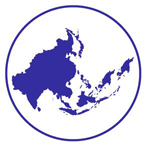Presentation Title
Location
Council Chambers
Start Date
12-10-2013 2:00 PM
End Date
12-10-2013 3:30 PM
Abstract
The history of Hong Kong, Macau, and the Pearl River Delta in connecting China with the world through European colonialism and globalization is a well-documented story. Yet the recent designations of the Historic Centre of Macau in 2005 and the Kaiping "diaolou" (fortified watched towers and mansions) in 2007 as World Cultural Heritage sites have further placed two Chinese outposts of western influence and overseas emigration into sharper focus. With the return of Hong Kong and Macau to Chinese sovereignty at the turn of the last century along with cultural change in the Pearl River Delta, museums, tourism, and heritage sites have become critical nexus in negotiating the meanings of the colonial past, transnational culture, national growth and local identity. This paper uses a historical and cultural approach to examine three themes relating to museums, historic tours, and World Heritage designation in these three local areas. By exploring western delta's linkage with overseas Chinese, Macau's connection with the Portuguese past, and Hong Kong's search for its identity, this paper combines historical sources and local ethnography to argue for a new understanding of Chineseness and global Asia through the process of cultural invention and reinterpretation. In addition, the paper seeks to illuminate the tension and conflict in the interpretation of the past over western colonial legacy, Chinese cultural integration, and interests of the local community.
Included in
Negotiating Colonialism and Chineseness: Museums, Tours, and Heritage Preservation in Pearl River Delta, Macau, and Hong Kong
Council Chambers
The history of Hong Kong, Macau, and the Pearl River Delta in connecting China with the world through European colonialism and globalization is a well-documented story. Yet the recent designations of the Historic Centre of Macau in 2005 and the Kaiping "diaolou" (fortified watched towers and mansions) in 2007 as World Cultural Heritage sites have further placed two Chinese outposts of western influence and overseas emigration into sharper focus. With the return of Hong Kong and Macau to Chinese sovereignty at the turn of the last century along with cultural change in the Pearl River Delta, museums, tourism, and heritage sites have become critical nexus in negotiating the meanings of the colonial past, transnational culture, national growth and local identity. This paper uses a historical and cultural approach to examine three themes relating to museums, historic tours, and World Heritage designation in these three local areas. By exploring western delta's linkage with overseas Chinese, Macau's connection with the Portuguese past, and Hong Kong's search for its identity, this paper combines historical sources and local ethnography to argue for a new understanding of Chineseness and global Asia through the process of cultural invention and reinterpretation. In addition, the paper seeks to illuminate the tension and conflict in the interpretation of the past over western colonial legacy, Chinese cultural integration, and interests of the local community.

Comments
Presentation is included in Panel 17: Festivals, Museums, and Public Memory in Asia